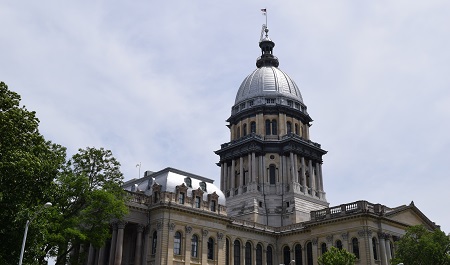With just under a month left in the current legislative session, I’m happy to report that one of our legislative priorities passed the Illinois House earlier this week. Legislators signaled their support for a House Resolution to improve Career and Technical Education (CTE) collaboration and course access.
We’re grateful to you for your advocacy and to the Representatives who showed their strong support as sponsors. This resolution takes a bold step toward improving equitable access to CTE courses and facilitating the partnerships needed for successful CTE programs to flourish.
The research tells us that CTE partnerships work. Students who complete CTE programs are more likely to graduate high school and enroll in college. This resolution sends a strong signal in support of these vital programs.
Will you join us in thanking the lawmakers who led the way as sponsors of the House Resolution?

















